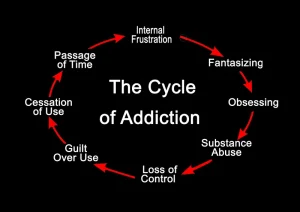How to Relieve Job Stress After Work

If conflict finds you anyway, make sure you know how to handle it appropriately. Developing some effective conflict resolution skills can help you prevent minor disputes from becoming major headaches. Make sure that you’re managing your stress before you even start your workday. If you are getting to work already frazzled, exhausted, and at your wit’s end, it’s going to much more challenging to handle other stresses that work might throw your way. Work stress has significant health consequences that range from relatively benign (like getting more colds and flus) to potentially serious (such as heart disease and metabolic syndrome). The ride home from work can be stressful if you keep replaying the stresses of the day, or letting traffic stress you out even more.

Tell people what you need

Mindfulness is the relaxing practice of tuning into the present moment with a mindset of acceptance. As you shift your attention to sensory input from your environment, the stressful chatter in your brain becomes less overwhelming. Regular, restorative sleep is crucial for cognitive how to destress after work and physical health. Work burnout can occur because of factors like an unrealistic workload, or regularly long hours that interfere with your work-life balance. Burnout results from elevated and prolonged stress which can affect you emotionally, cognitively, and physically.
How do you manage work pressure?
Unfortunately, your client might not have the necessary power or resources to make the changes needed in the workplace to counteract burnout. The best way to explain the effects of work and leisure activities on our health is to use the metaphor of a battery. Work activities delete our battery charge, but certain activities can recharge us. For example, you can focus on your breath for 1 minute and then mentally repeat a positive affirmation for 3 minutes.
Take mental health days

These symptoms continued to escalate, and with feedback from family and friends, employees came to realize that they were experiencing burnout. The importance of self-care is simple when we return to the battery metaphor. If your client’s battery is not fully charged, then they cannot provide enough energy to their work and life responsibilities.
How to Relieve Job Stress After Work
- A supportive network can provide emotional support, practical advice, and a sense of belonging.
- A 2019 study concluded that spending 20 minutes outdoors, even if just sitting down, is an effective way to reduce stress.
- Take a little time to review the following common culprits of work stress — see if any resonate with you.
This might mean saying no to overtime or extra shifts, or even stepping down from a big project or high-ranking corporate team. Or you can try rescheduling your personal time to allow for more sleep. Benefits are part of your compensation in exchange for the work that you do.

- The same report found that a whopping 94% of workers say they feel stressed at work.
- This week, try to notice how much time you spend complaining about work and see if this is the right amount of time for you.
- Sometimes stress is a good indication that something in your life needs to change.
The APA suggests limiting afternoon caffeine intake and nighttime screen use. Write down what stresses you out during the workday and how you respond. Perhaps morning traffic makes you late and cranky from the start, or a noon meeting causes you to forgo lunch for chips instead. Whatever it is, jot it all down, then take time to reflect on how you might respond to each situation in a healthier way. Keeping a journal to track your stress triggers and reactions may help.
The Silent Rhythm of Workplace Stress
- Because we spend so much of our non-work hours at home, it’s important to have a home environment that soothes your stress rather than one that leaves you feeling more stressed and tired than it should.
- Talkspace articles are written by experienced mental health-wellness contributors; they are grounded in scientific research and evidence-based practices.
- By reading participants’ regular journal entries, researchers gained insight into natural strategies that participants used to combat burnout.
To combat stress and burnout, employers are increasingly offering benefits like virtual mental health support, spontaneous days or even weeks off, meeting-free days, and flexible work scheduling. Despite these efforts and the increasing number of employees buying into the importance of wellness, the effort is lost if you don’t actually recover. So, if you feel like https://ecosoberhouse.com/ you’re burning out, what works when it comes to recovering from stress? High-pressure jobs can create psychological stress that is severe enough to have physical effects, from chronic headaches to nausea to insomnia. If we find ourselves in the kind of job that is resulting in a hit to our health, we must take intentional steps to better our body and mind.
Did you know that sitting for nine to ten hours a day can significantly increase your risk of heart disease? If you’re one of the millions clocking long hours at a desk, this fact might feel uncomfortably relevant. If you’ve just started a new job, whether it’s for the first time or the tenth time, you’re probably feeling a little (or a lot of!) stress. There are many new tasks to learn and your boss’s or co-workers’ expectations may be high.
In some instances, employees still report feeling burnout even after one year, and sometimes even after a decade (Cherniss, 1990). Take short breaks while working with breathing exercises or a mindful snack. Schedule enough time for low-resource activities, such as power naps or meditations. In addition, use a life calendar or app to schedule time for joy- and meaningful activities. Besides talking to managers or supervisors, there is little that employees can do to change the company culture or workplace demands. Unlike employees, managers have the power and resources to change the workplace environment.
